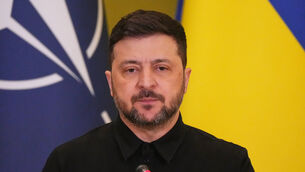Israel halts army offensive
Israel ordered its army to halt its offensive against Lebanese-based Hezbollah guerillas in as a United Nations-imposed ceasefire went into effect today.
The ceasefire that began at 5am GMT (6am Irish time), followed 34 days of warfare that devastated much of south Lebanon and left northern Israel in a shambles.














